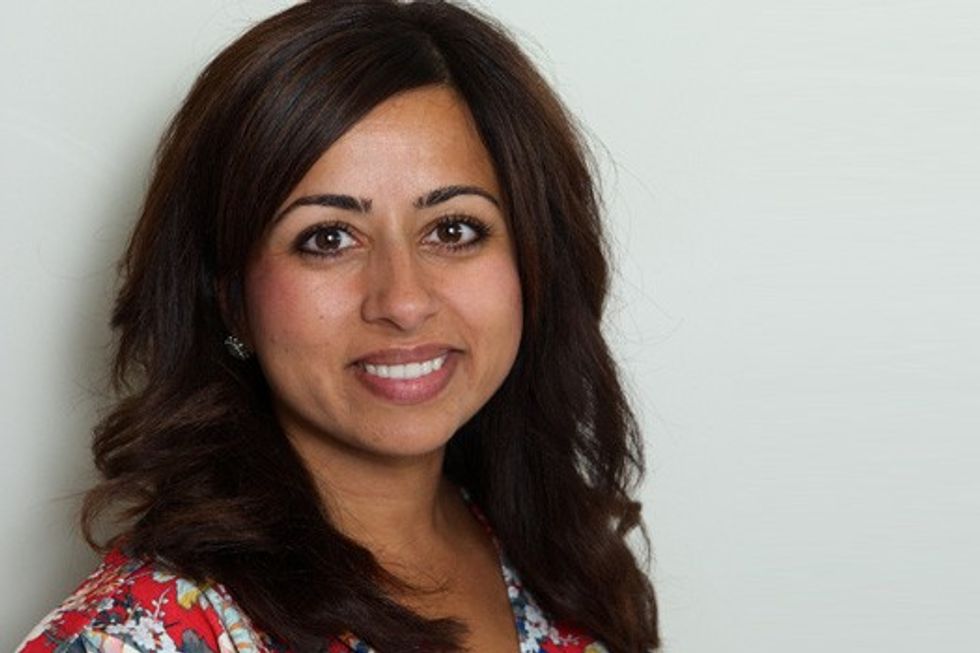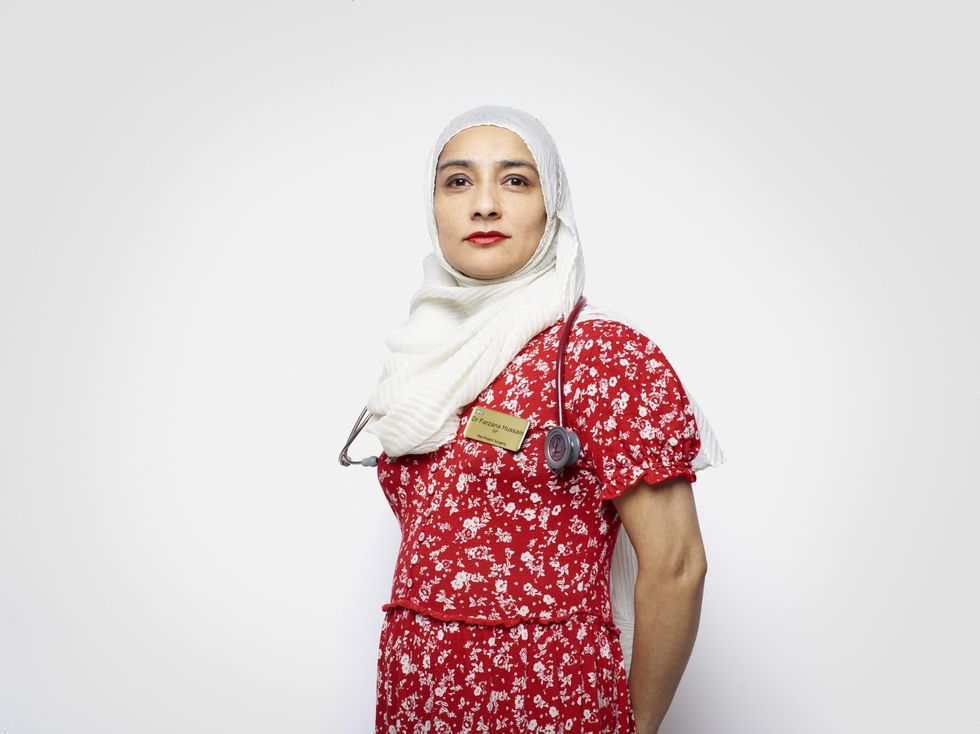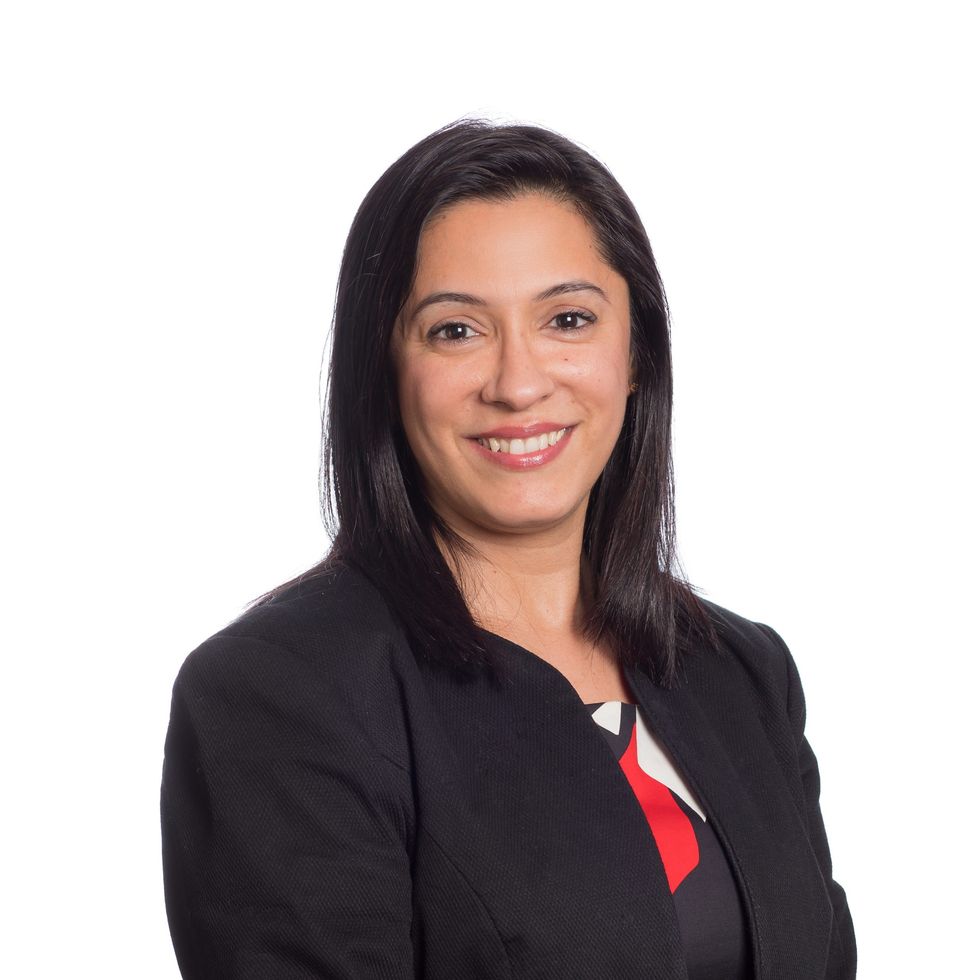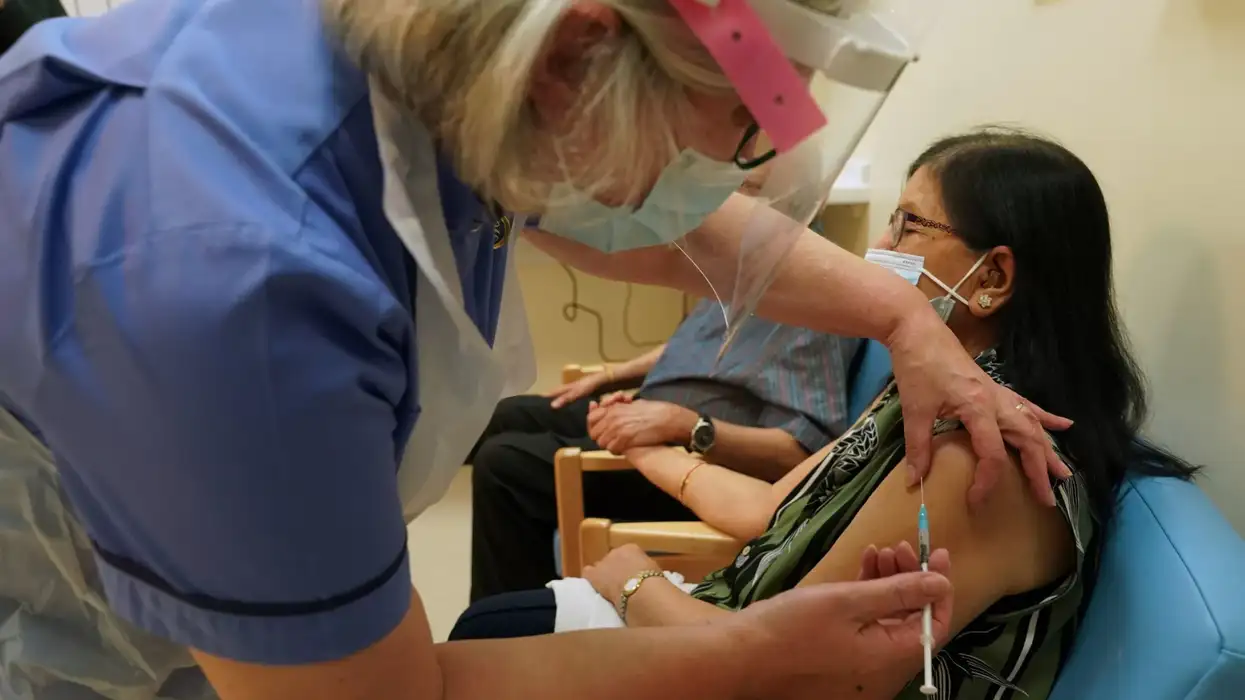by LAUREN CODLING
ASIANS have been urged to take the coronavirus vaccine as doctors expressed concerns that “fake news” was causing many from the community to reject it.
Rumours claiming that the vaccines contain alcohol and animal products (such as beef and pork) have been circulating on social media and WhatsApp in recent months. There has also been false material warning the jab can alter a person’s DNA, but experts have refuted these claims as misinformation.
Many have blamed the reluctance of ethnic minorities to engage with the vaccination programme on the spread of such myths. Last weekend, analysis showed 42 per cent of Pakistani and Bangladeshi groups said they were unlikely or very unlikely to be vaccinated. The figures, from the UK Household Longitudinal Study, found 75 per cent of people from black groups gave the same response.
Dr Nikita Kanani, the medical director of primary care at NHS England, told Eastern Eye she was aware of some of the rumours which have been circulating. “False information about Covid-19 vaccines could cost lives,” she said on Tuesday (19). “We are working hard to combat any misinformation regarding the vaccine – including working with the Counter Disinformation Unit and with social media companies to report harmful and false reporting, and direct people to trusted sources.”

The NHS and local authorities provide advice and information at every possible opportunity, Dr Kanani said. That included working closely with BAME communities to support those receiving a vaccine and anyone who has questions about the vaccination process.
London mayor Sadiq Khan also pushed back against this “fake news”, warning that the misinformation was scaring “sensible, intelligent, reasonable members” of the BAME population into not receiving the vaccine. “We should trust experts like GPs, pharmacists, staff in hospitals, rather than people who are spreading lies and fake information,” Khan told Eastern Eye last Monday (18). “It’s really important that we use the opportunities provided by this vaccine. If you’re eligible, please take it. It will help you, your family and your community.”
Speaking to the BBC last week, Reena Pujara, a practising Hindu from Hampshire, said she had been repeatedly sent false information about the vaccine. “Some of the videos are quite disturbing, especially when you see the person reporting is a medic and telling you that the vaccine is going to alter your DNA,” Pujara said. “For a layman it is very confusing. And also when you read that the ingredients in the vaccine are derived from a cow – and as Hindus the cow is sacred to us – it is disturbing.”
Dr Harpreet Sood, NHS England’s associate chief clinical information officer, is currently leading an anti-disinformation drive for the health service. He admitted having “big concerns” about the reports of some ethnic minorities being reluctant to engage with the immunisation programme.
He said: “We need to be clear and make people realise there is no meat in the vaccine, there is no pork in the vaccine. It has been accepted and endorsed by all the religious leaders and councils and faith communities.”
Meanwhile, south Asian role models and influencers, as well as community and religious leaders have come together to help dispel myths regarding the jab. “We’re trying to find role models and influencers and also thinking about ordinary citizens who need to be quick with this information so that they can all support one another because, ultimately, everyone is a role model to everyone,” Dr Sood said.
Language and cultural barriers may be responsible for the false messages spread via WhatsApp and social media platforms, and may have played a part in the false information reaching ethnic minorities, he added.
Last week, a report from the government’s Scientific Advisory Group for Emergencies (Sage) also blamed “structural and institutional racism and discrimination” for the vaccine scepticism among some BAME communities. “Minority ethnic groups have historically been under represented within health research, including vaccines trials, which can influence trust in a particular vaccine being perceived as appropriate and safe, and concerns that immunisation research is not ethnically heterogenous,” the report said.

Dr Farzana Hussain, a GP in Newham, east London, agreed that some ethnic minorities felt “quite victimised”. For instance, she referred to research which suggested that factors such as racism and social inequality may have contributed to increased risks of ethnic minorities catching and dying from Covid-19. “There’s fear and a bit of anger among some communities – they are questioning whether we are living in an equal world,” she said. “I think they also feel a bit paranoid about anything that comes from central government and the NHS.”
She attributed this paranoia to a lack of trust in the government, noting the conflicting advice from authorities throughout the pandemic. “It’s like when (government) said people could celebrate Christmas and then Christmas was cancelled,” she said. “People find it hard to have faith in anything we are saying centrally. I don’t think we are getting our message out in a consistent way where people can trust us.”
Khan shared similar concerns, saying many ethnic minorities lack confidence in government institutions. “There’s a lack of trust and confidence between minority communities and people in positions of power and influence,” the London mayor said. “But all I say to those who are a bit hesitant is – look at the evidence and the disproportionate number of people from our communities who have either caught the virus or lost their lives. It would be heartbreaking if those who need the vaccine the most did not receive it.”
Dr Sulaxni Nainani, GP and a member of the Leicester City Clinical Commissioning Group, said it was concerning that people from BAME communities were less likely to take up Covid vaccinations, especially when evidence has shown they are more likely to become seriously ill or die from the virus. “This vaccine saves lives, it is as simple as that, and we urge everyone to have it,” Dr Nainani told Eastern Eye. “It is being endorsed by religious leaders and faith communities in the UK and I am really pleased to see that other Asian influencers and medical experts are now talking about this very openly.”

Last month, Dr Samara Afzal, who works in Dudley, West Midlands, told Eastern Eye she had seen numerous anti-vaccine conspiracy theories circulating on social media in recent months. Some questioned the speed at which the vaccine was developed and was now being administered across UK hospitals, while others falsely believed that Covid-19 was “a man-made virus”. “To be honest, I am disappointed. We know ethnic minority communities are more likely to have serious consequences from Covid, so I thought that would have drilled home by now,” Dr Afzal said.
A Muslim Council of Britain (MCB) spokesperson told Eastern Eye they were aware of the misinformation shared within the BAME community. Initial concerns regarding whether or not the vaccine was halal for Muslims, based on rumours that it may contain pork derivatives, have been dispelled, they said. “Work needs to be done to actively address the numerous myths surrounding the vaccines, but it is nonetheless heartening to see increased participation of Muslim communities in the vaccination process,” the spokesperson added.
Meanwhile, Labour MP Apsana Begum accused Tory ministers of a “gross dereliction of duty” by failing to include ethnic minority groups among those prioritised for Covid vaccines. Writing to health secretary Matt Hancock last week, Begum said a vaccination programme prioritising ethnic groups would save more lives and protect the NHS. Begum, the MP for Poplar and Limehouse, a borough within Tower Hamlets in east London, said: “Structural racism and systemic discrimination are responsible for the loss of loved ones in diverse communities such as Tower Hamlets.”
Fellow Labour MP Virendra Sharma has also written to the health secretary as well as home secretary Priti Patel to ensure that the most vulnerable get Covid-19 vaccinations. Sharma said on Tuesday: “We owe this to some of the worst off, some of the most at risk, the most vulnerable in our society to ensure they aren’t the last left waiting for vaccinations. “We need a safe, secure and simple way for those without access to a GP to register and be vaccinated.”
A NHS England spokesperson confirmed they were not currently collecting vaccine uptake data by ethnicity. In response to Eastern Eye, Nadhim Zahawi, the minister responsible for Covid vaccine deployment, said the government recognised the importance of raising awareness of the myriad benefits of vaccination among the country’s ethnic minority communities. “The NHS provides targeted advice and public information about the vaccination process to build awareness about its benefits,” he said.
According to the government, the information campaign has published messaging in more than 600 publications, including those with high proportions of ethnic minority readerships. More than five million people have been reached through the ethnic minority influencer programme, ministers added.




